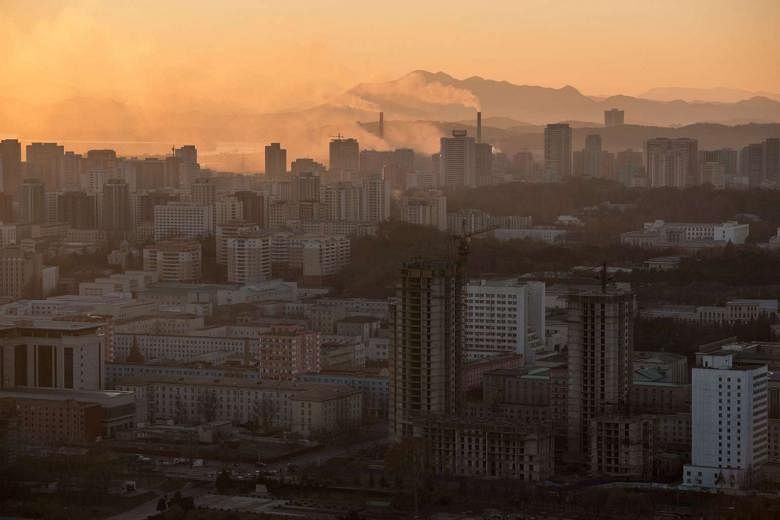UNITED NATIONS (REUTERS) - The United Nations Security Council imposed new sanctions on North Korea on Wednesday (Nov 30) aimed at cutting the Asian country's annual export revenue by a quarter in response to Pyongyang's fifth and largest nuclear test in September.
The 15-member council unanimously adopted a resolution to slash North Korea's biggest export, coal, by about 60 per cent with an annual sales cap of US$400.9 million (S$573 billion) or 7.5 million metric tonnes, whichever is lower.
The US-drafted resolution also bans copper, nickel, silver and zinc exports and the sale of statues by Pyongyang.
The United States was realistic about what the new sanctions on North Korea - also known as the Democratic People's Republic of Korea (DPRK) - will achieve, the US Ambassador to the United Nations, Samantha Power, told the council after the vote.
"No resolution in New York will likely, tomorrow, persuade Pyongyang to cease its relentless pursuit of nuclear weapons. But this resolution imposes unprecedented costs on the DPRK regime for defying this Council's demands," she said.
"In total, this resolution will slash by at least US$800 million per year the hard currency that the DPRK has to fund its prohibited weapons programmes, which constitutes a full 25 per cent of the DPRK's entire export revenues," Power said.
North Korea has been under UN sanctions since 2006 over its nuclear and ballistic missile tests. It conducted its latest nuclear test on Sept 9.
Japanese Prime Minister Shinzo Abe said, in response to the strengthened sanctions, that North Korea's nuclear test and repeated launch of ballistic missiles this year are "unforgivable violations and cannot be tolerated".
In a statement released by Japan's Foreign Affairs Ministry on Wednesday, Mr Abe said the sanctions show "the will of the international community to take strict measures in a new dimension", and vowed to cooperate with fellow UN Security Council members such as United States, South Korea, China and Russia to "strictly implement the resolution and ensure its effectiveness".
" Sanctions are only as effective as their implementation," UN Secretary-General Ban Ki-moon told the council. "It is incumbent on all member states of the United Nations to make every effort to ensure that these sanctions are fully implemented."
China, believed to be the only country buying North Korean coal, would slash its imports by some US$700 million compared with 2015 sales under the new sanctions, diplomats said.
Over the first 10 months of 2016, China imported 18.6 million tonnes of coal from North Korea, up almost 13 per cent from a year earlier. North Korean exports to the end of 2016 will now be capped at US$53.5 million, or 1 million metric tonnes.
While China said it was opposed to North Korea's nuclear tests, UN Ambassador Liu Jieyi accused the United States and South Korea of intensifying confrontation with North Korea by scaling up military exercises and presence.
He described the planned US deployment of a Terminal High Altitude Area Defense (THAAD) anti-missile system in South Korea as "neither conducive to the realisation of the goal of de-nuclearisation of the Korean peninsula nor helpful to the maintenance of peace and stability on the peninsula."
The UN resolution blacklisted 11 more individuals, including former ambassadors to Egypt and Myanmar, and 10 entities, subjecting them to a global travel ban and asset freeze for ties to North Korea's nuclear and missile programmes.
It calls on UN states to reduce the number of staff at North Korea's foreign missions and requires countries to limit the number of bank accounts to one per North Korean diplomatic mission amid concerns that Pyongyang had used its diplomats and foreign missions to engage in illicit activities.

